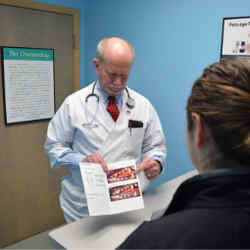3 Parasite Prevention Tips From the Veterinarians at Montgomery Animal Hospital

As springtime gets closer and you start to spend more time outside with your pet, the chances of them being exposed to parasites gets higher. All dogs and cats are at risk for parasites, such as fleas and ticks, intestinal parasites, and heartworms. For more than 65 years, the veterinarians at Montgomery Animal Hospital in Cincinnati have been treating pets who are diagnosed with diseases carried by parasites.
Luckily, there are simple steps you can take as a pet owner to prevent parasites and protect your pet—and your family. Here are three parasite prevention tips from the veterinarians at Montgomery Animal Hospital:
- Deworm Puppies & Kittens: Young pets can acquire intestinal parasites from their mother, which means many puppies and kittens are infected with parasites when they're adopted. Therefore, most puppies and kittens should be dewormed every two to three weeks until they are 12 weeks old. Animals that are adopted when they are older should be dewormed at least twice. Ask your veterinarian at Montgomery Animal Hospital what they recommend.
- Use Parasite Preventatives: Once your pet has been dewormed, the next best way to keep fleas and ticks off of your pet is to use a monthly oral parasite preventative. Although over-the-counter products might be cheaper, many have serious side effects and limited effectiveness. In addition to preventing external parasites, it’s important to use a monthly heartworm preventative to stop internal parasites and heartworm infection. The veterinarians at Montgomery Animal Hospital can recommend pet medication products that are safe and highly effective.

- Keep Their Environment Clean: Pets can pick up parasites in areas of the yard or house where they eliminate their waste if their feces become contaminated with intestinal parasite eggs. To prevent this, be sure to clean out litter boxes and keep your yard free of feces. Beware of feces from other dogs who might be infected. Cover sandboxes and play areas, and don’t let your dog eat other animals' waste.
No matter what prevention measures you take, your dog or cat might still become infected. Take your pet to the veterinarians at Montgomery Animal Hospital for routine parasite screenings so you can catch problems early and treat them with pet medications before they become serious.
For more information about parasite prevention, schedule an appointment with one of the friendly veterinarians at Montgomery Animal Hospital. For more information about the services offered at Montgomery Animal Hospital in Cincinnati, from dentistry and diagnostics to laser therapy and surgery, visit their website or call (513) 791-7912 today.
About the Business
Have a question? Ask the experts!
Send your question

